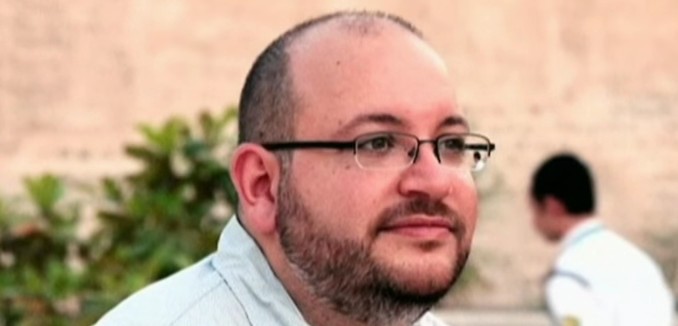Companies and nations considering making an “unseemly rush” to open commercial ties with Iran in the wake of last month’s nuclear deal should take note of the ordeal of detained Washington Post reporter Jason Rezaian before commencing business with the Islamic Republic, an editorial in the Post warned today.
Iran is No. 130 out of 189 nations on the World Bank’s ranking of ease of doing business. Corruption is rampant and many industries are controlled by the malignant Revolutionary Guard, whose leaders oppose any opening to the West. It remains to be seen whether even big oil companies such as France’s Total and Italy’s Eni, which worked in Iran before sanctions were imposed, will be offered sufficient incentives to invest in new production at a time of a global oil market glut.
For investors on the fence, we have some advice: Before joining the crowd in Tehran, wait to see what happens to Post reporter Jason Rezaian. Three weeks after the nuclear deal was signed, Mr. Rezaian still sits in Tehran’s notorious Evin prison, where he has been held since his arrest on July 22, 2014. His continued detention violates multiple Iranian and international laws, including one very simple one: An Iranian statute says no suspect who has not yet been convicted may be held for more than a year, unless accused of murder.
The editorial pointed out that Rezaian has been held for more than a year. Today was the fourth, and possibly last, session of his trial, which has had sporadic hearings since May. The editorial asserted that “no live witnesses or substantial evidence” have been presented to support the charges against Rezaian.
These circumstances should raise several questions for those contemplating investment in Iran. Can the government of Mr. Zarif and President Hassan Rouhani be relied upon when it makes promises about terms for Western companies — or will it be sabotaged by Revolutionary Guard commanders who wish to defend their corrupt economic interests and keep the West out? If there are legal disputes, can Iranian courts be relied upon to enforce even straightforward laws? And will Western business owners visiting Tehran be safe from the fate of Mr. Rezaian — a correspondent duly credentialed by the Ministry of Culture and Islamic Guidance who was abducted by security forces and held in solitary confinement for months without charge while being subjected to harsh interrogation?
A Post editorial in May used Rezaian’s case as a warning that tourists traveling to Iran could be used as hostages. Last year, an editorial in the paper asked how a government that couldn’t or wouldn’t protect an American reporter could be trusted to abide by an American-brokered nuclear deal.
The corruption referred to in the editorial will likely be magnified by the deal, as many organizations with murky government ties, such as EIKO, the slush fund for Iranian Supreme Leader Ayatollah Ali Khamenei, will have sanctions against them lifted shortly after a final deal is signed. According to Jonathan Schanzer and Mark Dubowitz of the Foundation for Defense of Democracies, EIKO allows Khamenei and Iran’s leadership “to hide billions of dollars in corporate profits earned at the expense of the Iranian people.”
[Photo: FRANCE24 English / YouTube ]




